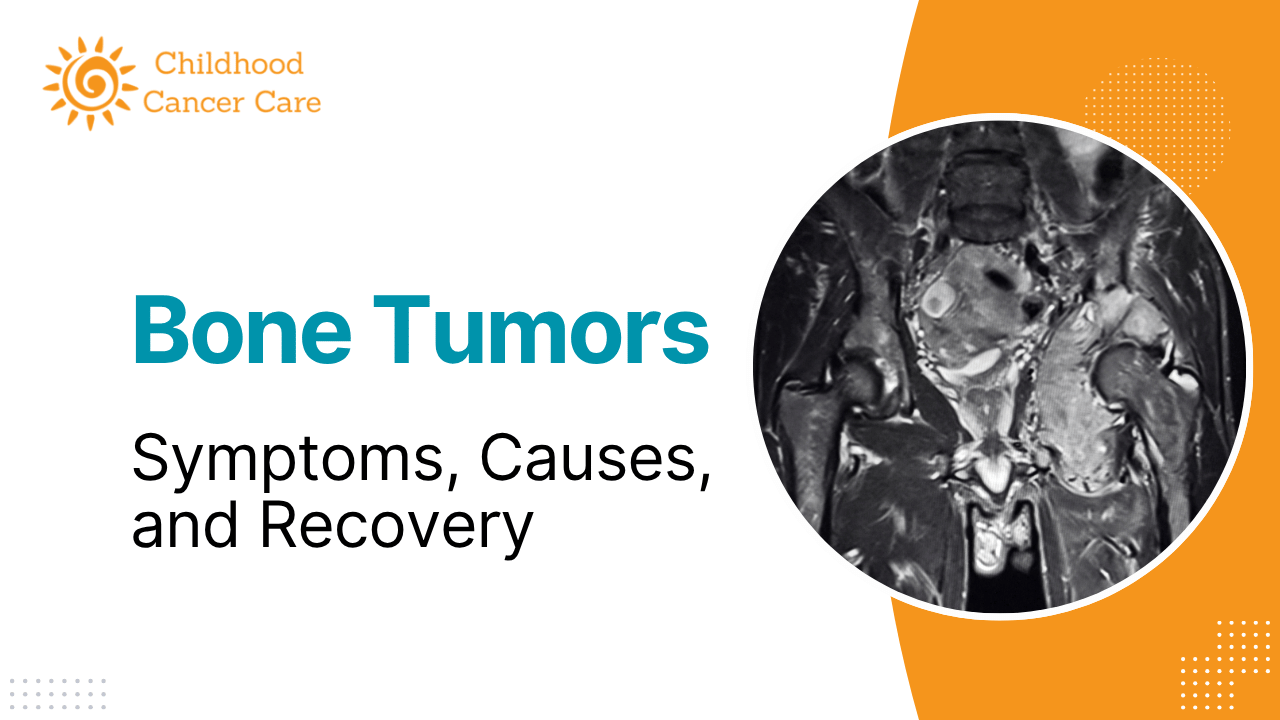Bone Tumors Explained in Mumbai

Bone Tumors Explained: Symptoms, Causes, and Recovery
Bone tumors can affect people of all ages. They may be benign (non-cancerous) or malignant (cancerous), and early diagnosis can make a big difference in recovery. Understanding the symptoms, causes, treatment options, and when to consult a specialist helps you take informed action. This guide explains the basics of bone tumors in simple terms.
What Are Bone Tumors?

Bone tumors are abnormal growths in bones.
They may start in the bone (primary tumors) or spread from another part of the body (secondary tumors or metastases).
Most bone tumors in children and teens are benign. Malignant tumors are less common but require prompt treatment.
Common Symptoms of Bone Tumors
You may not notice symptoms in the early stages. As the tumor grows, common signs include:
- Pain in the bone or joint
- Swelling or lump in the affected area
- Increased pain at night or during activity
- Restricted movement
- Weak bones or frequent fractures
- Fatigue or weight loss (in cancerous tumors)
Pain that doesn’t go away or worsens with time should not be ignored.
Causes and Risk Factors

The exact cause of most bone tumors is unknown.
But some risk factors may increase the chances:
- Genetic mutations
- Inherited conditions like Li-Fraumeni syndrome or hereditary retinoblastoma
- Radiation exposure
- Paget’s disease of bone (more common in older adults)
- Previous cancer treatments
Primary bone cancer is rare, but it can affect both children and adults.
Types of Bone Tumors
Bone tumors are categorized as benign or malignant.
Benign Bone Tumors
- Osteochondroma – most common; often appears in teens and young adults
- Enchondroma – often found in hands and feet
- Osteoid osteoma – small, painful, typically in long bones
- Fibrous dysplasia – abnormal bone development
Malignant Bone Tumors
- Osteosarcoma – most common in teens; affects long bones like the femur
- Ewing sarcoma – often in pelvis, ribs, or legs
- Chondrosarcoma – starts in cartilage; more common in adults
Each type requires different treatment strategies.
Diagnosis and Tests
Your doctor may suggest several tests:
- X-ray – first step to check bone abnormalities
- MRI or CT scan – provides detailed imaging
- Bone scan – detects areas of high bone activity
- Biopsy – confirms if the tumor is benign or cancerous
- Blood tests – helps rule out infections or other conditions
Early diagnosis helps with better treatment outcomes.
Treatment and Recovery
Treatment depends on the tumor type, size, location, and whether it has spread.
Treatment Options

- Surgery – removes the tumor; may involve bone reconstruction
- Chemotherapy – common for malignant tumors like osteosarcoma
- Radiation therapy – used when surgery isn’t possible or alongside chemo
- Targeted therapy or immunotherapy – for specific cancer types
Recovery Process
- Regular follow-ups to monitor healing
- Physical therapy to regain mobility
- Emotional support for children and parents
- Nutritional guidance and healthy lifestyle
- Long-term surveillance in case of recurrence
The treatment plan is tailored to your needs. Staying positive and following medical advice helps improve outcomes.
About Dr. Shweta Bansal
Dr. Shweta Bansalis a leading Pediatric Hemato Oncologist and Bone Marrow Transplant Specialist based in Mumbai. She holds extensive experience in treating complex pediatric blood and cancer disorders with a compassionate, patient-first approach.
Her areas of specialization include Pediatric Oncology, Bone Marrow Transplants, Acute and Chronic Leukemia, Solid Tumors such as Sarcoma and Brain Tumors, Hodgkin Lymphoma, as well as advanced therapies like Immunotherapy and Precision Oncology.
Patients can visit her at Sir H. N. Reliance Foundation Hospital or book an appointmentthrough the hospital’s official website or helpline.
Frequently Asked Questions (FAQs)
Conclusion
Bone tumors may sound scary, but they are treatable—especially when detected early. Learning the symptoms and staying informed empowers you to take the right steps. If you or your child is showing any signs, consult a specialist without delay. Hope and healing are possible with the right care and support. For expert guidance, connect with Dr. Shweta Bansal at Sir H. N. Reliance Foundation Hospital, Mumbai.
Copyright © Childhood Cancer Care | Dr. Shweta Bansal.